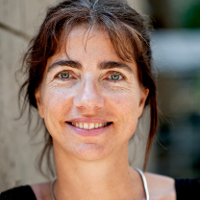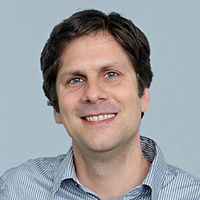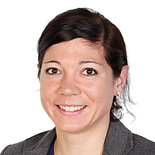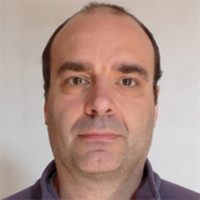Edda Klipp, HU Berlin

Mathematical modeling of biological networks
Edda Klipp’s group uses mathematical models to describe and investigate regulatory links in a variety of different cellular processes, ranging from gene expression to metabolism. As part of their research activity they develop computational tools that they use to study biological phenomena in yeast, Bacillus subtilis or mammalian cells.
Edda Klipp took a doctoral degree in theoretical biophysics at the Humboldt University (HU) Berlin in 1994. She later lead a junior research group entitled “Kinetic Modeling” at the Max-Planck Institute for Molecular Genetics (MPI MG) and the Berlin Center for Genome Based Bioinformatics (BCB). Since 2008 Klipp has returned to Humbold University as a Professor for Theoretical Biophysics.
Uwe Ohler, MDC Berlin

Gene regulation on the transcriptional and post-transcriptional level
Uwe Ohler’s lab develops and applies genomics approaches to investigate gene regulation in eukaryotes at multiple levels on the way from DNA to protein. Making use of the latest types of sequencing data they study the cell’s control of transcription in terms of initiation, localization and furher processing of RNA and integrate this with insights on the dynamics of chromatin structure during differentiation and development.
Uwe Ohler did a PhD in Computer Science in 2002 working on computational identification of promoters in eukaryotic genomes. His interest in computational biology led him to the US to work at MIT first and Duke University later, where he also received tenure. Since 2012 Ohler is a group leader at the Max Delbrück Center (MDC) and holds a professorship at the Humbold University of Berlin.
Judith Zaugg, EMBL Heidelberg

Understanding the molecular basis of complex genetic traits
Judith Zaugg and her lab investigate variation in molecular phenotypes among human individuals with the goal to gain a better understanding of the molecular basis of complex traits. Through the integration of high-throuput ‘omics data sets on a population scale they unravel the links between genetic background and inter-individual differences with the ultimate goal to bring personalized genomics to the clinics.
Judith Zaugg did her PhD at the European Bioinformatics Institute (EBI) in Cambridge, UK and worked as a Postdoc at the Standford University, where she integrated ChiP-seq data on histone modifications with physical interactome data (Hi-C, ChIA-PET) of healthy individuals to study genetic associciations between distal regulatory elements in the genome. Since 2014 she runs a lab at EMBL Heidelberg.
Denis Thieffry, ENS Paris

Computational systems biology
The Thieffry team works on computational approaches to model molecular regulatory networks. Together with their experimental collaborators they apply these models to genome-wide functional data to understand regulatory processes in cell differentiation, for example in blood cells. The software derived from these efforts, such as the Regulatory Sequence Analysis Tool (RSAT) and the Gene Interaction Network Simulator (GINsim) are made freely available to the community.
Thieffry earned his PhD in 1993 at the Free University of Brussels and continued his research on the postdoctorial level for several years in different places, including Germany, Belgium and Mexico. After a decade of holding a full professorship at the University of the Mediterranean in Marseilles, he is now group leader at the Institute of Biology of l’École Normale Supérior (IBENS) in Paris.